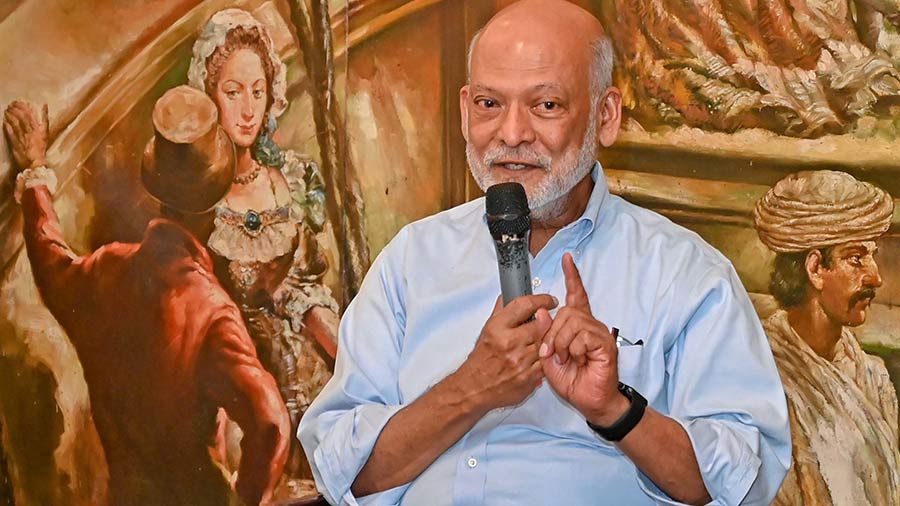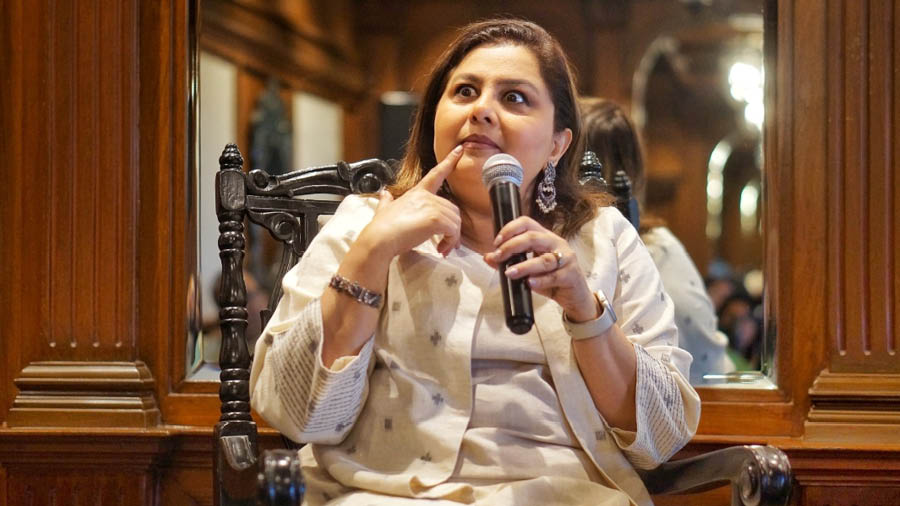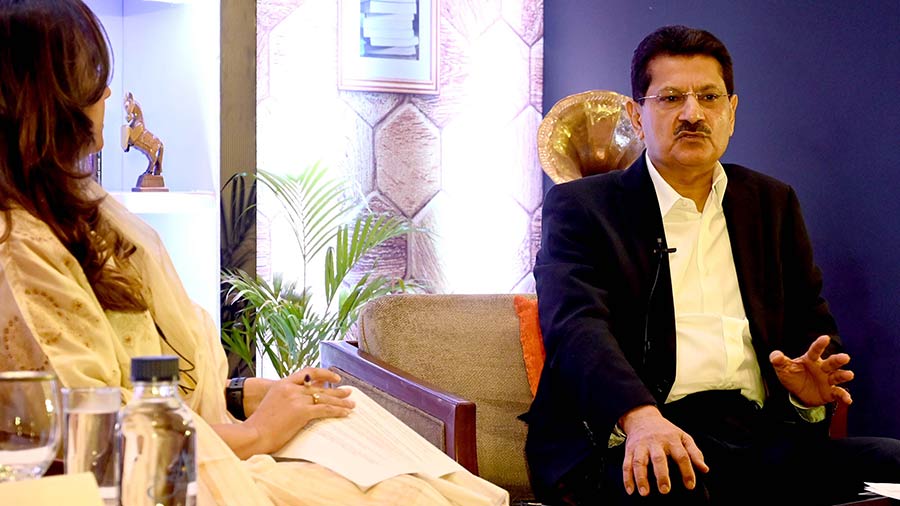Any discussion on Bengali cinema is incomplete without the mention of Mrinal Sen’s movies.
The filmmaker par excellence gifted cinephiles with gems such as Padatik, Mrigayaa, Calcutta 71, Kharij and Ek Din Pratidin, among others, that have continued to enthral and intrigue movie lovers for years.
To celebrate the birth centenary year of the legendary director, Prabha Khaitan Foundation organised a session of Tete a Tea, with Kunal Sen, the son of Mrinal Sen, who was in conversation with the writer, art curator and documentarian, Ina Puri, to discuss the life and work of his father. The event took place at The Bengal Club, with My Kolkata as digital partner.
‘He fell in love with the city as soon as he came here’
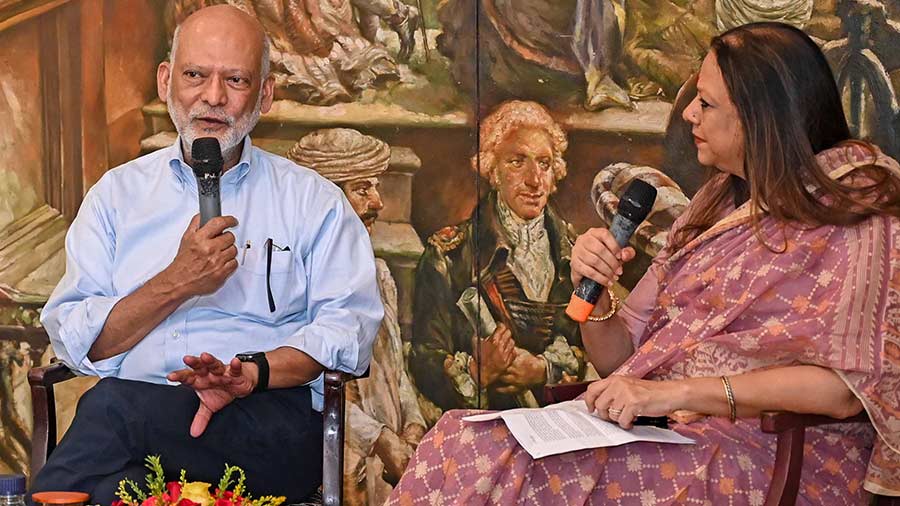
Sen in conversation with Ina Puri
A love affair with Kolkata is not unheard of. It is, in fact, supposed to be significantly more intense for the artists who have thrived in the city. For Mrinal Sen, the experience was not too different. Having left Faridpur in Bangladesh at the age of 17 to attend a university in Kolkata, he never experienced any sense of displacement. Though he was joined by his family after the Partition, his sense of belonging kept him moored in Kolkata until his death. “He considered Kolkata to be the place that made him grow and become who he was. His earlier films were very Kolkata-centric. Later, he focused on stories that had Kolkata as the background,” said Kunal.
But he was not one who gave into the trappings of nostalgia despite his love for the city. “He always believed that nostalgia brings a romantic colour to things and one loses objectivity. He fought nostalgia and didn’t ever want to dwell on it,” confirmed Kunal.
In fact, the senior Sen’s desire to adapt himself to newer times was an attempt to accept the progress of technology. “Initially, he had an allergic reaction to TV because of the advertisements and interruptions between movies. With TV, the illusion of the film breaks immediately, which doesn’t happen in a theatre. On the other hand, I think he believed that people can transcend their present to take the leap into the world of the make-believe. When he made the 12 short films for Doordarshan, they were all in a very different format from what he was used to. He tried to adapt to a new medium,” said Kunal.
The man behind the filmmaker
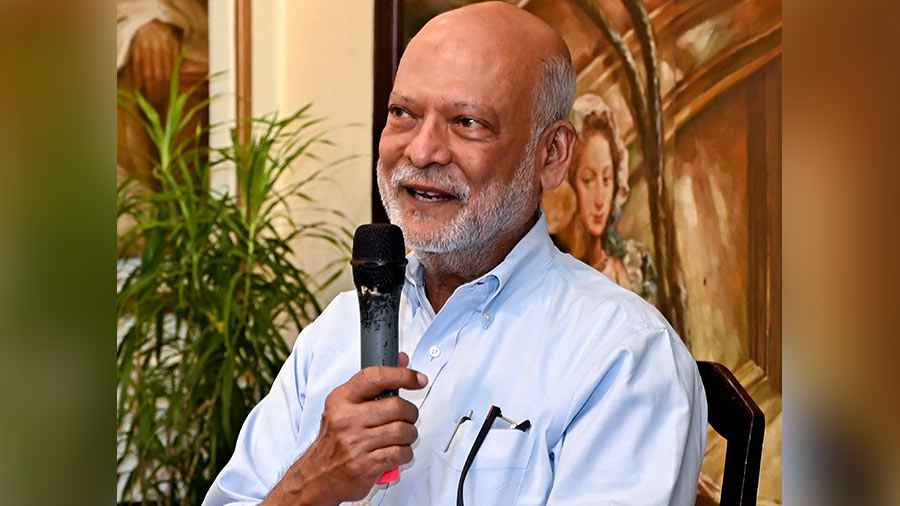
Mrinal Sen was particular about the people he employed on his sets, recollected his son
“My father truly believed in low-budget films. He believed that if one can make a film without the influence of the financier, then even if it’s seen by a scattered audience, one can recoup the money that has been invested. He used to say that he could tell what kind of films a filmmaker makes as soon as he walked into their house. What he meant was that if he saw affluence in the setting, he didn’t expect good films. As a result, he was against anything that used high technology and was a Hollywood-like production,” noted Kunal.
But despite his preference for low-budget films, Sen always made it a point to pay the technicians working on his set significantly higher wages than the industry rates and always shared a close bond with them. He also was particular about the people he employed on his sets. After the passing away of the art director and production designer, Bansi Chandragupta, he employed one of Kunal Sen’s friends, Nitish Roy, as the set designer for his film Kharij, impressed by Roy’s keen perception. Roy eventually went on to work for Shyam Benegal and win several National Film Awards. In fact, before the shooting of Mrigayaa, Mithun Chakraborty was remarkably flamboyant in his bell bottoms, tight shirts and long hair. But for the movie he was transformed into his character with the help of a haircut from a local barber, much to the displeasure of the actor. Eventually, Chakraborty went on to win the National Award for Best Actor for the movie.
Chronicling the life of a father
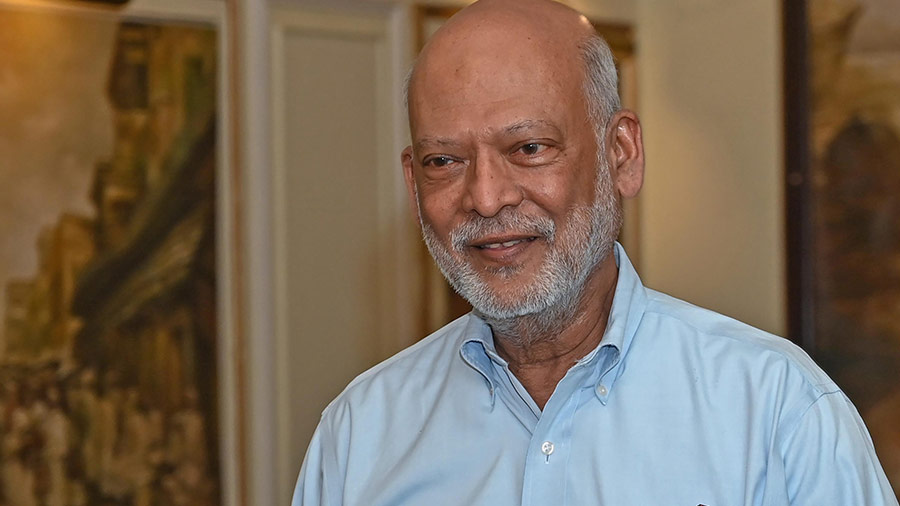
Sen’s book on his father is based around thematic chapters and is not a chronological biography
As a father, Sen was mostly absent. Elaborating on it, his son pointed out that during his formative years, the father figure in his life was the actor, Anup Kumar, whom he used to call “Anu”. “My father was completely irresponsible and never wanted to take any fatherly responsibility. One time while playing in a park, I fell down and hit my chin on the edge of the stairs, and there was a huge gash. The older kids took me to the drug store where they stitched me up. My father was out of town and I was desperately imagining how he would react once he saw me when he came back. When he did, he asked my mother what had happened. After hearing from my mother, he immediately came to me and he put his hand on my forehead, and started talking about his work without paying any attention to the cut. That was a complete letdown for me,” recalled Kunal.
Was it, then, difficult for Kunal to chronicle the life of his father in his upcoming book Bondhu — My Father, My Friend?
“I’m not a writer, and when the publisher asked me to, I hesitated. The first thing I decided was that I wasn’t going to write about the aesthetics of his films. I also made an early decision that I won’t make it into a chronological biography because a lot has been written about him already and I’m not a researcher. So, I decided to take thematic chapters and connect different parts of his life,” concluded Kunal.
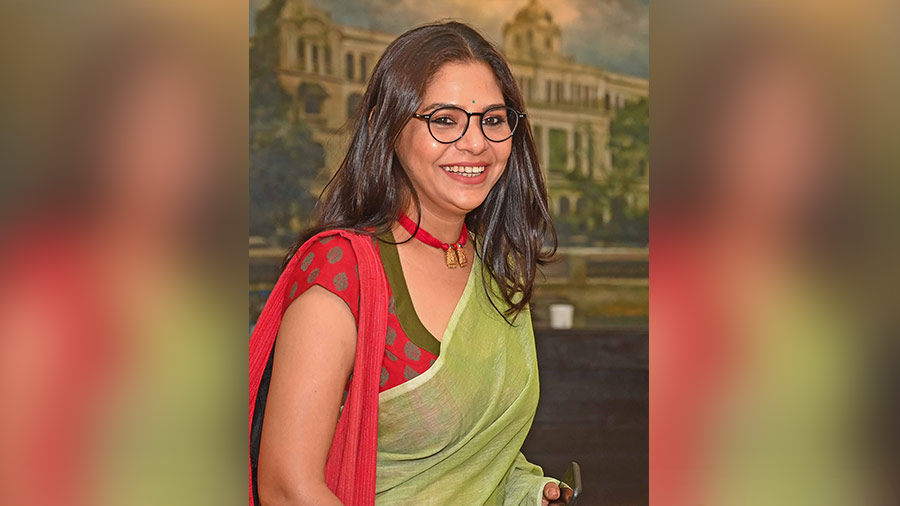
Sudipta Chakraborty

“It was exciting to listen to Kunal Sen speak about his father because we can’t get access to the man himself anymore. We didn’t have the opportunity to work with him, and so, the more we listen to people talk about him, the more enriched we become.”
Sudipta Chakraborty, actor
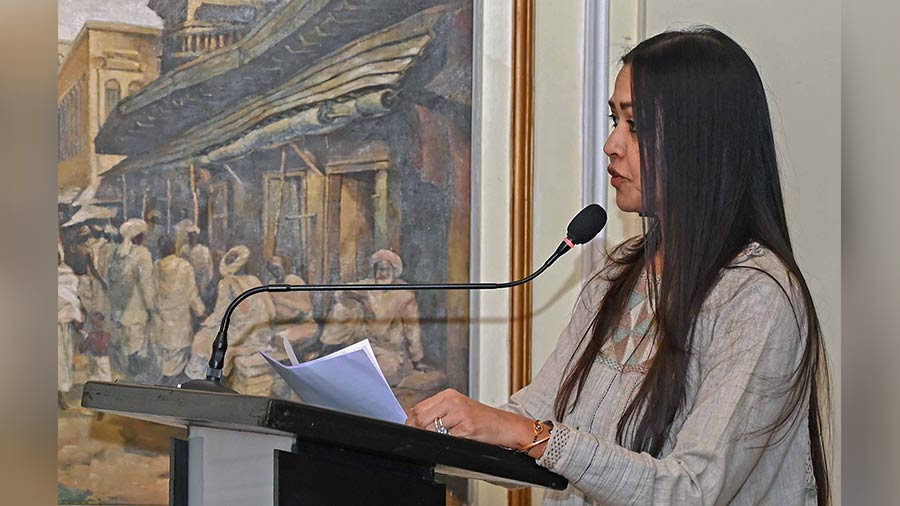
Esha Dutta

“Conversations which are anecdotal in nature are always more interesting than regular ones. This one had a special element to it as it was a son talking about his father and we got to know so many things about him which no film or book would allow us to know. Definitely one of the most interesting Tete a Tea events from the Prabha Khaitan Foundation portfolio.”
Esha Dutta, Ehsaas Woman of Kolkata
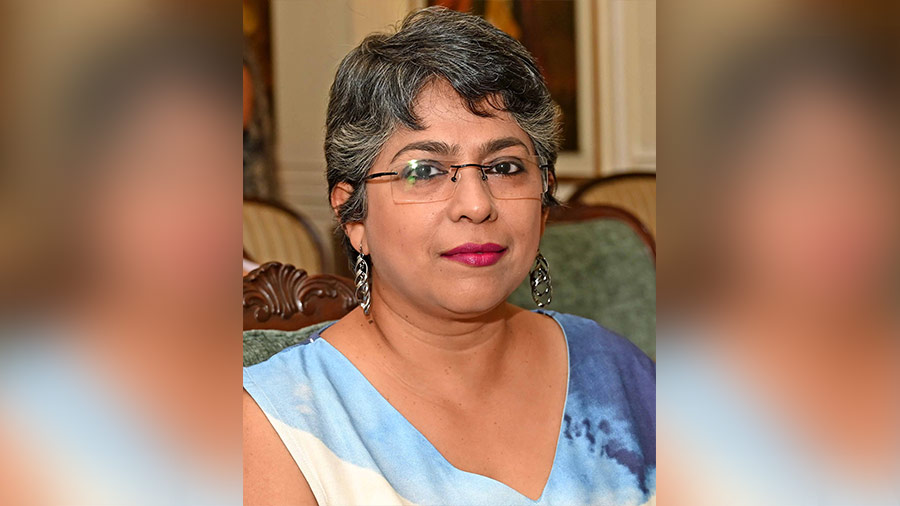
Rituparna Roy

